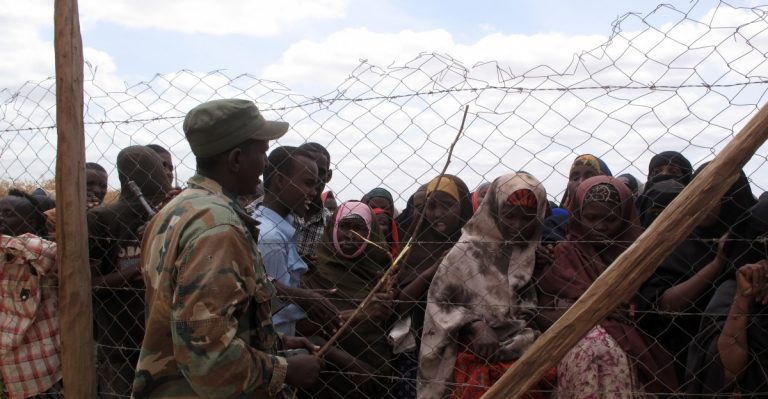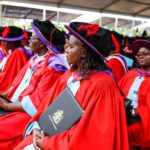
‘Through their eyes’ is an inspirational mini-series on the personal struggles and hardship faced by refugees around the world as they escape war and persecution to achieve their dreams of a better life through higher education.
Ahmed Burale is a 33-year-old Somali who was forced to flee his war-torn home. This is his story:
I was only 8-years-old when my home was stolen from me. Memories of 1991 still bring back buried feelings of fear and panic. This is the year the civil war took its toll.
Before the war, we lived happily in Somalia. My whole family lived in the Kismayu village. Every Wednesday and Friday we would have a family picnic 10km away from Kismayu. Here, the Juba river connects to the Indian Ocean and I would splash about in the water with my cousins whilst the adults prepared the food. These are the happiest memories I have.
But, this was before the dark days which saw my friends and family’s livelihoods stripped away. Safety and happiness were replaced with fear and peril. Even now, all these years later, I can still remember the panic of hearing the militant soldiers patrol our village, knowing that this was a life-or-death situation as they invaded our home.
For some of my family, it was death.
Left with no other choice, I fled to Kenya with all the family I had left. Hoping to finally remember what safety feels like, we were taken in as refugees by the Kenyan government. We were given asylum, and, finally, there was hope. After years of watching the civil war tear our home apart, Kenya promised the safety that we so desperately sought.

Ahmed Burale.
But life here proved to have its own traumas. Every night after sunset, the local Kenyan community would raid the refugee camp. Once again, we were helpless and vulnerable. Our belongings were robbed, we were beaten and abused, and we were told we would be killed if we dared to open our mouths. It was terrifying.
After 24 long years of struggling to survive in this way, my eldest brother was eventually resettled in the US in April 2016. Watching him leave was haunting as I had already lost so many of my family members. I couldn’t lose him as well.
But, a month later, I was also offered safety in the US. Upon arriving in my new home in May 2016, I felt a sense of solace surround me. I received the warmest welcome and, immediately, it felt as though I was a member of the US.
Whilst I was still in the refugee camp in Kenya, I decided that I was going to complete a Computer Science degree after all this was over. Education has always been important for me, and I thank my mother for this.
Before all the hardship in Somalia started, my mother used to tell my siblings and me, “to be without knowledge is to be without light in a dark room”. She would tell us this every day as we ate breakfast before school.
After we became refugees, my mother encouraged me to continue into higher education so I can help our community and humanity as a whole. There is a lot of hate in the world but I know that knowledge can be the light that overcomes all evil.
I chose to study Computer Science after I worked with refugee school children using digital education resources. I was inspired by the impact it had on the children’s academic improvement and, most importantly, the number of young girls who were encouraged to join schools through the program.
After I have completed my studies, I am going to implement a digital education program that will benefit underprivileged young people who have been robbed of a basic education. This program will help children who are suffering due to destruction of governments, education systems or ongoing violence, as is the case in my home country.
Higher education should be a priority for all people. But, refugees and asylum seekers are especially in need of higher education. A vast number of the younger generations have lost their basic rights, such as an education, a home and a job due to the eruption of violence in their countries.
Higher education is the most vital point of literacy and is needed to help refugees navigate and rebuild their country after their collapse. It is a way of recovering war-stricken countries. Countries in civil wars cheat the illiterate and youth out of money to fund their criminal activities. For this reason, I believe it is crucial to educate young people so that they can become the necessary change to rebuild their country.
I would not be where I am today, if it were not for the University of the People. They offered me high quality, affordable higher education when I needed it most. They gave me and my community hope. I encourage others who are in a similar situation to take their futures into their hands and pursue higher education.
**This account has been rewritten for clarity and style.
Liked this? Then you’ll love…
Changing fates: An Afghan refugee’s journey from war to Cambridge
Middle Eastern refugees get to study Princeton courses via this innovative approach







